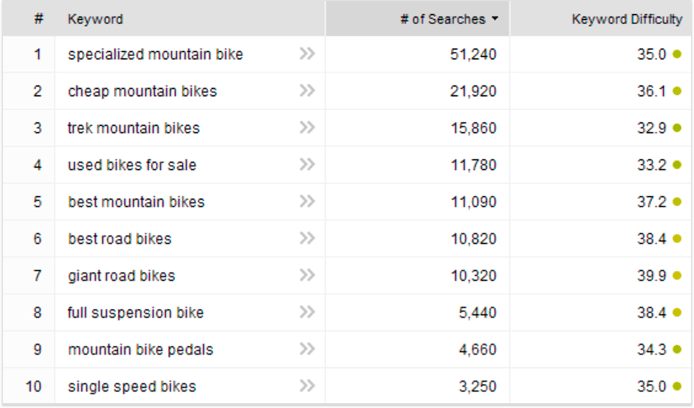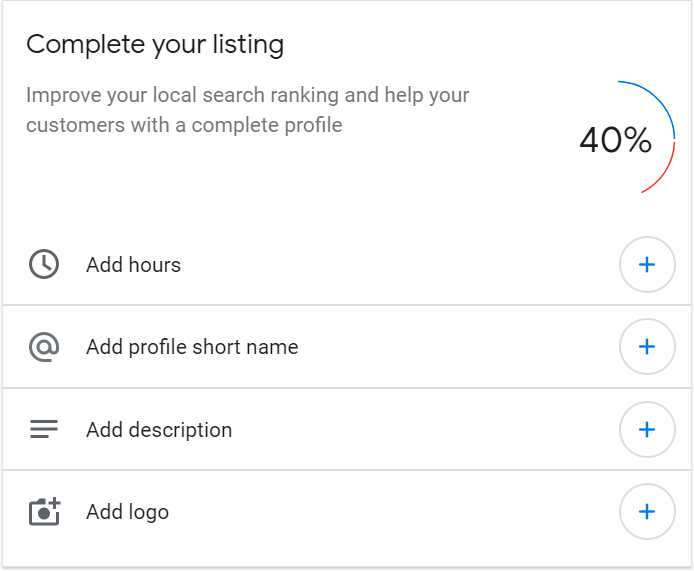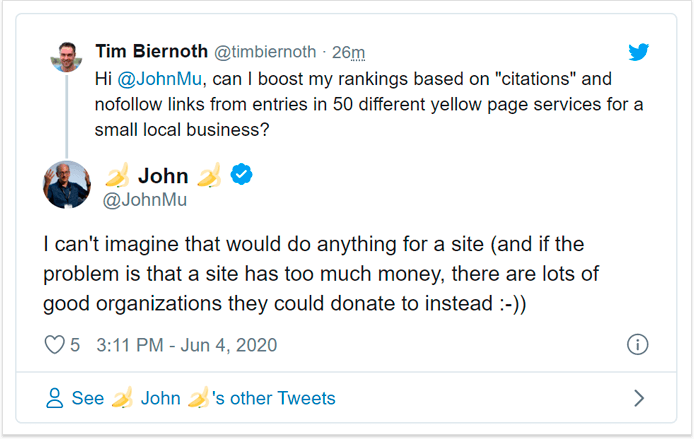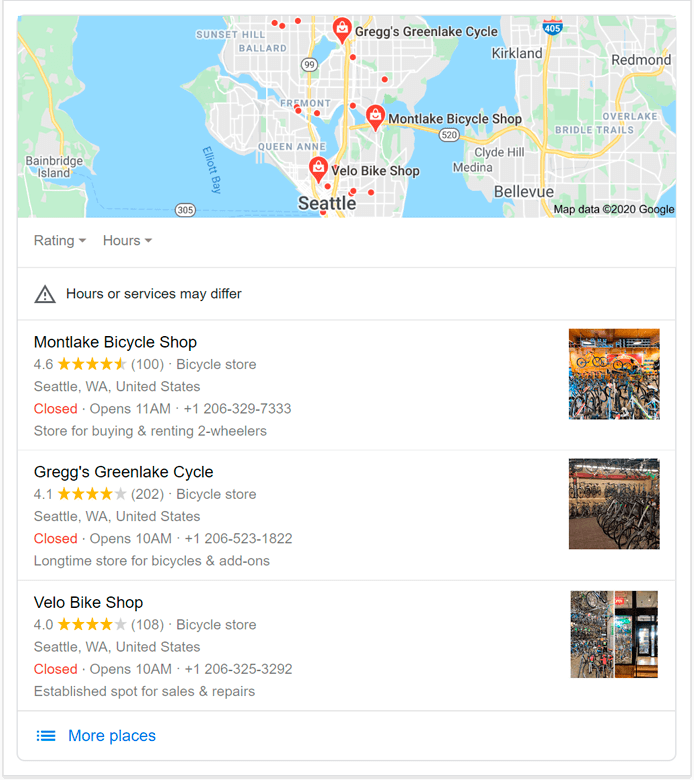20860
•
12-minute read


Full disclosure — search optimization for a small business is about 90% similar to that of a big business. In this article, we will focus on the remaining 10%, the things that a small business has to do differently because of the lack of either the resources or the brand power.
If the budget is one of your constraints, then perhaps you should hold off on paying for search optimization services and instead try optimizing your website on your own. It will save you money, sure, but it will also give you a better understanding of your SEO needs, which will come in handy if you decide to hire an SEO agency later on. Having at least some knowledge of SEO, you will be in a better position to negotiate the rates and to monitor the work being done on your website.
Just to give you a rough estimate of how much you are looking to save by attempting your own SEO, here are the typical rates that search optimization goes for:
Up to $300/month — to attempt search optimization on your own;
Up to $1,000/month — for an agency to manage a low competition site;
Up to $5,000/month — for an agency to manage a high competition site.
Since most SEO techniques are relatively easy to pick up, I would say always start out by attempting search optimization on your own and then switch to an agency once/if you reach the limit of what can be done without professional help.
Search optimization techniques come in various degrees of difficulty, but the majority of them require no special skills and can be picked up by virtually anyone. The best place to start learning about SEO practices is right at the source, from the SEO Starter Guide by Google. It's packed full of detailed, actionable advice, and most of it is much more reliable than what you would get from articles by SEO gurus pushing their services.
The guide by Google may seem overwhelming, so I would suggest treating it as a checklist and optimizing one thing per day, per evening, per weekend, or whatever is your allocated SEO session. Whenever you encounter something with a way too steep learning curve, mark it down to be delegated to an SEO agency later on.
If you need any further assistance or if you've hit a dead-end trying to figure something out, you'll be pleased to know that SEO has one of the most responsive professional communities on the web. For any SEO-related questions feel free to address the r/SEO community on Reddit, the dwellers of the BlackHatWorld forum, or our own SEO PowerSuite user group on Facebook.
When you start reading about SEO, some practices may sound intimidating, requiring complex technical implementation. The good news is that most of those practices can actually be implemented with no technical proficiency whatsoever. There are plenty of tools, free or paid, designed to simplify various aspects of SEO, allowing them to be implemented with a few clicks of a button.
Some aspects of SEO may not even require any of your attention. Like, everyone knows that getting an SSL certificate is among the first website optimization tasks. If you were to procure and install your own SSL certificate it would be a full day job. But you don't have to do that anymore — SSL certificates come free with most hosting plans, all you have to do is choose the right hosting provider.
Similarly, mobile optimization used to be no task for a novice webmaster. Today, all you have to do is choose a responsive WordPress theme for your website and you are good to go. Or, let's say you want to add alt text to all of your images. There is no need to visit each page and edit its HTML code — just go to your WordPress media library, click through your images, and fill out the alt text field — no technical knowledge required.
Of course, other tasks, like website audit, keyword research, content creation, and link building are not as easily automated, but there are still tools that can help you do the heavy lifting:
Google provides plenty of free and easy-to-use SEO tools. How to do keyword research using them? For keyword research and keyword tracking, Google offers Keyword Planner, Google Trends, and Search Console, while various aspects of page optimization can be tested and optimized using the Mobile-Friendly Test, PageSpeed Insights, Structured Data Markup Helper and Structured Data Testing Tool.
We have also developed a set of tools for the full cycle of search optimization: WebSite Auditor for technical issues and on-page SEO, Rank Tracker for keyword research and position tracking, and SEO SpyGlass for building your backlink profile. Our tools are mostly free, although there are some premium features, which you can explore via a free trial available upon installation.
There are plenty of other SEO tools on the market, each with their strengths and weaknesses, and most with a hefty price tag. If you really want to use any of those other tools but are short on funds, my suggestion would be to exploit the trial periods. If the trial period is one week, then set a week apart, do as much SEO as the tool allows, and then cancel your subscription. Make sure to download all of your researched keywords and audit reports to use them beyond your trial period.
It is not advisable for smaller businesses to go for highly competitive keywords. Those keywords are long captured by bigger, better-established brands, and it will take an inordinate amount of effort to rank for them. And by the time you do, you might well be out of business.
Instead, go for less popular keywords that have been overlooked by your competitors. These keywords will not deliver a whole lot of traffic, but they will allow you to gain a foothold in the rankings. And once you build your website's strength with these easy keywords, you can attempt ranking for something more competitive.
To find these initial keywords, run keyword research, and look for low difficulty keywords with at least some search volume. Here is an example of how that would go if you were to use Rank Tracker:
Below are the top ten keywords I was able to find using 'bike store' as a seed keyword. The full list contains about a hundred of long-tail keywords, all with respectable search volumes and relatively low difficulty. That's a solid start to your content strategy, considering the whole process took about five minutes:

When you were starting your business, you must have counted on some advantage to give you the edge over your competitors. It could have been a better service or a better range of products, but whatever it was, it has to be reflected in your search optimization strategy.
Going back to the bike store example, let's say your competitive advantage is that you are the first store in your area, say Seattle, to carry Bianchi bikes. Then, before optimizing for generic keywords like 'bike store seattle' or 'road bikes seattle', you have to optimize for your competitive advantage keywords, like 'bianchi bikes seattle' or 'italian bikes seattle'.
Let's continue with the bike store example. Say, you are an experienced biker, you live in Seattle, you launch your own store, create a website, add a blog section, and intend to establish your biking authority by writing about cool stuff, like the history of biking, best trails in the area, biking events, and featured customer stories.
The problem is, reading about cool stuff is not a part of the buyer journey. Cool stuff is certainly entertaining, it helps you build a community and retain existing customers, but it does not help you to sell bikes, which is your primary concern right now. Unfortunately, as a small business, you can't afford to write about cool stuff until you've created enough content to drive a constant stream of sales.
So, when developing your initial content plan, make sure that each piece of content you schedule is a part of the buyer journey. Generally speaking, your content should be designed to satisfy one of those three searcher intents:
At the very beginning of the buyer journey, your potential customers want to learn about product types and product properties. They use long-form queries, like 'how to choose a bike', 'what makes a good bike', 'types of bikes', or 'how to size a bike'. This intent is best met with detailed guides.
Once your potential customers figure out the general varieties that your product comes in, they would want to investigate the variety they are interested in the most. At this stage, searchers use queries like 'best fixie bikes', 'top city bikes under $500', or 'bianchi pista review'. This intent is best satisfied with reviews and listicles.
Finally, as searchers are nearing the purchase, they will use queries like 'bianchi pista price', 'colnago c60 seattle', or 'trek bikes on sale'. This intent is best met with category and product pages from within your catalog.
The term 'small business SEO' is often used interchangeably with the term 'local SEO'. The idea is that the smaller the business is, the more it is tied to a certain area. If this is the case with your business, then you should definitely optimize your online presence for local search.
If you could do just one thing for your local SEO, it would have to be claiming your Google My Business (GMB) listing. GMB is Google's own business directory and its prime source of information about your company. Filling this listing gets you into Google maps, pushes you into local search results, and makes you a candidate for the local pack in search results — it takes care of about 90% of your local SEO. All you have to do is visit the GMB page, claim or create your listing, and then follow Google's suggestions on filling out the rest of the details:

The second most important element of local SEO is applying local business schema markup on your website. It is basically a collection of HTML tags that helps search engines extract information about your address, phone number, email, and business hours, among other things. Those types of signals reinforce your local relevance with Google, as well as other search engines.
Citation is what SEOs call a listing of your business details on third-party platforms, like business directories and social networks. There is this common belief that the more citations you have (we are talking thousands) the better you rank for local search results, but it's doubtful that it actually works:

While there is little evidence of citations influencing rankings, I would still suggest filling out your business profiles for key business directories and social networks in your area, say Yelp, Facebook, Instagram, and LinkedIn. Not because these citations would help your rankings, but because these platforms are search engines in their own right and some people use them to look up local businesses.
If you are using any SEO tools, make sure they are set to analyze search results in your specific location. This is especially important for keyword research and rank tracking, as the results may vary significantly depending on where you are searching from. Using Rank Tracker as an example, you can go to 'Preferences' > 'Preferred search engines' and add custom areas to be used when analyzing search data.
When you are just starting out, Google is going to be cautious about your company and it will look for signs of whether you can be trusted. One of the strongest of such signs is the number of your GMB reviews and your overall rating:

Encourage your customers to review your business by sending them a follow-up email or by asking them in person, if appropriate, and if you see that they are happy with your product/service.
Make sure to reply to all reviews in a non-generic manner, and take special care of bad reviews. Some of your potential customers will seek out these bad reviews and will judge your business based on how the reviews were handled, so always do your best to deescalate the situation in a graceful manner. And, who knows, the reviewer might decide to change their rating as a result of your reply.
The running theme of small business SEO is the constraint. Without the budget of a big company, and without the inertia of an established brand, there is much less room for error. Where bigger companies can afford to pay for low yield SEO services, to create content for the sake of content, and to ignore an occasional bad review, smaller businesses may end up paying a heavy price. To this end, small business SEO is about maximizing every little opportunity, be it your own commitment, your competitive advantages, or a personal touch when dealing with customers.